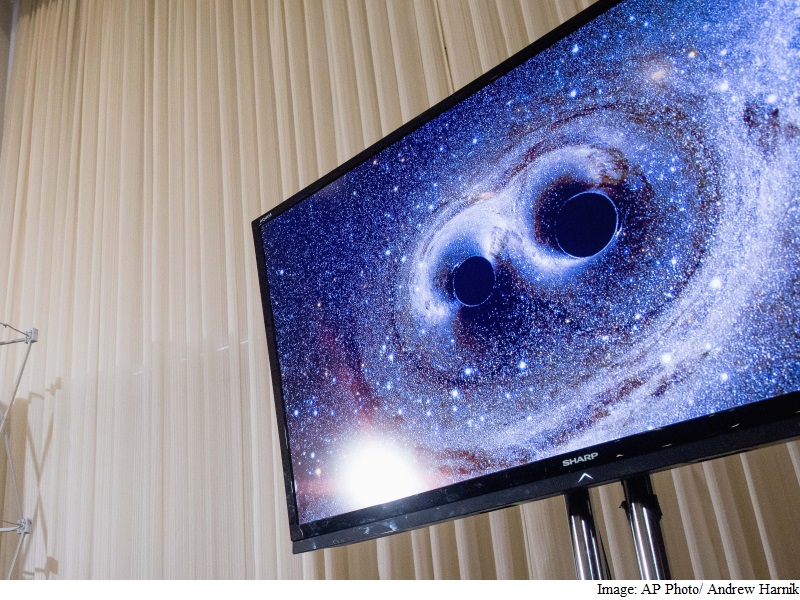- Home
- Science
- Science News
- China Launches Gravitational Waves Research Project
China Launches Gravitational Waves Research Project

The US-based Laser Interferometer Gravitational-wave Observatory (LIGO) announced its ground-breaking discovery of gravitational waves on Thursday, which fulfilled the prediction of Albert Einstein's general theory of relativity one century ago.
(Also see: Meet LIGO, the World's Most Sophisticated Science Machines)
The new discovery has encouraged further studies into gravitational waves around the world, with China accelerating its domestic research, Xinhua news agency quoted Li Miao, dean of the Institute of Astronomy and Space Science of a university in China, as saying.
According to Li, Tianqin has already made progress on some key technologies and will be carried out in four stages over the next 15 to 20 years, including the last step of launching three high-orbit satellites to detect gravitational waves.
(Also see: A Brief History of Gravity, Gravitational Waves and LIGO)
The university plans to build a 5,000-square-metre observatory and a new lab occupying more than 10,000 square metres on Fenghuang mountain in Zhuhai city in Guangdong province.
Chen Yanbei, scientist with LIGO, said Tianqin will study the gravitational waves in the space, which is different from research made by the US ground-based observatory.
"Tianqin will likely collect more information about the phenomenon, as a larger black hole may be detected in space compared with one detected on the ground," said Chen.
The Sun Yat-sen University is willing to cooperate with other institutions in China as well as around the globe to carry out its project, Li added.
Catch the latest from the Consumer Electronics Show on Gadgets 360, at our CES 2026 hub.
Related Stories
- Samsung Galaxy Unpacked 2025
- ChatGPT
- Redmi Note 14 Pro+
- iPhone 16
- Apple Vision Pro
- Oneplus 12
- OnePlus Nord CE 3 Lite 5G
- iPhone 13
- Xiaomi 14 Pro
- Oppo Find N3
- Tecno Spark Go (2023)
- Realme V30
- Best Phones Under 25000
- Samsung Galaxy S24 Series
- Cryptocurrency
- iQoo 12
- Samsung Galaxy S24 Ultra
- Giottus
- Samsung Galaxy Z Flip 5
- Apple 'Scary Fast'
- Housefull 5
- GoPro Hero 12 Black Review
- Invincible Season 2
- JioGlass
- HD Ready TV
- Laptop Under 50000
- Smartwatch Under 10000
- Latest Mobile Phones
- Compare Phones
- Red Magic 11 Air
- Honor Magic 8 RSR Porsche Design
- Honor Magic 8 Pro Air
- Infinix Note Edge
- Lava Blaze Duo 3
- Tecno Spark Go 3
- iQOO Z11 Turbo
- OPPO A6c
- Lenovo Yoga Slim 7x (2025)
- Lenovo Yoga Slim 7a
- Lenovo Idea Tab Plus
- Realme Pad 3
- Moto Watch
- Garmin Quatix 8 Pro
- Haier H5E Series
- Acerpure Nitro Z Series 100-inch QLED TV
- Asus ROG Ally
- Nintendo Switch Lite
- Haier 1.6 Ton 5 Star Inverter Split AC (HSU19G-MZAID5BN-INV)
- Haier 1.6 Ton 5 Star Inverter Split AC (HSU19G-MZAIM5BN-INV)







![[Sponsored] Haier C90 OLED TV | Dolby Vision IQ, 144Hz OLED and Google TV in Action](https://www.gadgets360.com/static/mobile/images/spacer.png)









